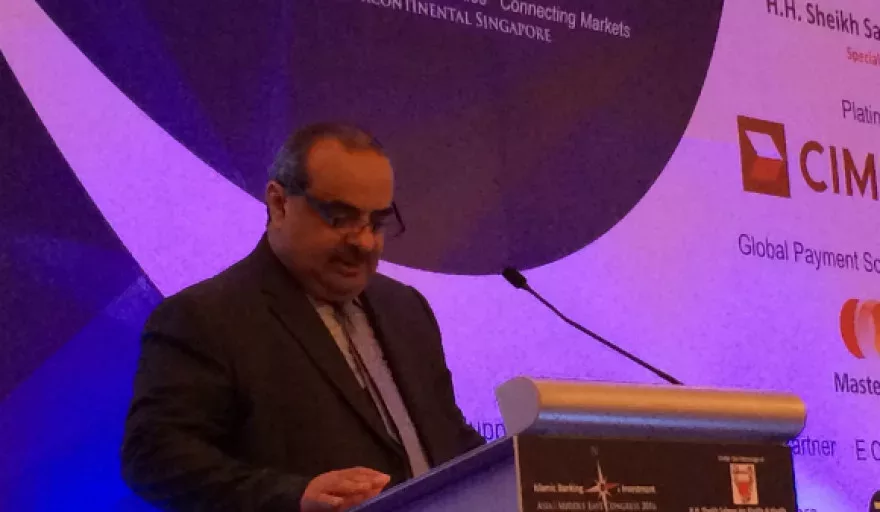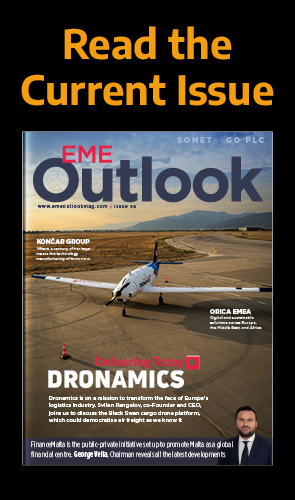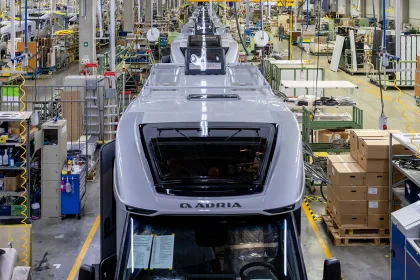Focusing on a fresh approach to engaging with the major issues impacting the future of Islamic finance across Asia and the Middle East, The Islamic Banking & Investment Asia/Middle East Congress 2016, held under the patronage of H.H. Sheikh Salman bin Khalifa Al Khalifa, Special Envoy – Kingdom of Bahrain, opened yesterday in Singapore. The event was attended by more than 250 industry leaders representing more than 80 international organisations. A powerful lineup of more than 40 international speakers and industry thought-leaders discussed topics focused on the theme ‘Responding to Headwinds and Capitalising on the Large‐Scale Infrastructure Opportunity’ in markets across Asia and the Middle East through Islamic finance.
Day 1 of the Islamic Banking & Investment Asia/Middle East Congress 2016 saw the launch of the latest edition of the IIFM Sukuk Report which focused on key trends and the changing dynamics of Sukuk issuances in various markets across the globe. The report was launched by Mr. Ijlal Alvi, Chief Executive Officer, The International Islamic Financial Market (IIFM).
Speaking at the sidelines of the Islamic Banking & Investment: Asia/Middle East Congress 2016, Dr. Mahmoud Mohieldin, Senior Vice President of the 2030 Development Agenda United, Nations Relations and Partnerships at The World Bank Group said: “The advantages that Islamic finance can provide to key economies has captured the attention of the World Bank, especially with regards to the resilience demonstrated by Islamic financial institutions and Islamic finance’s strong linkages to the real economy.
“The World Bank has taken several practical steps to support the development of Islamic finance, including involvement in some of our projects such as the US$500 million Sukuk to finance health projects. The Islamic finance industry needs an enabling environment and economies of scale and The Islamic Banking & Investment: Asia/Middle East Congress presents the kind of international platform where key decision-makers and leading players can engage and play a role in advancing the industry further. With its emphasis on inclusion and its link to the real economy, Islamic finance can and must play a role in advancing the 2030 Agenda for sustainable development and the attainment of the SDGs.”
Speaking at the event, Ms. Raja Teh Maimunah, Managing Director / CEO, Hong Leong Islamic Bank Berhad said: “The global Islamic finance industry offers a value proposition that applies to both Muslims and non-Muslims alike, which is a key component that will increasingly broaden the consumer base for Islamic financial institutions. Islamic banking services in core markets such as Malaysia and Indonesia, where the Muslim population is comparatively high, is increasingly being seen as a preferred choice.
“In key new markets for Islamic banking, such as in the UK and across Central Asia and the African continent, the central bank and regulatory bodies have been making significant progress to establish the essential infrastructure for Islamic banking to function. Industry forums such as the Islamic Banking & Investment: Asia/Middle East Congress 2016 provide an opportunity for industry leaders to strengthen collaboration on an international scale, explore new innovations in the industry, and showcase the value proposition of Islamic banking to companies and entrepreneurs as an alternative means of funding.”
Mr. Mohamad Safri Shahul Hamid, Senior Managing Director & Deputy Chief Executive Officer of CIMB Islamic, summarised: “There are more than 600 Islamic financial institutions operating in more than 75 countries, offering a wide range of products and services. In the past decade the growth has been well documented, with total global Islamic banking assets growing at a compound annual growth rate of more than 40 percent globally. The Kingdom of Saudi Arabia continues to dominate the share of the global Islamic banking market at 33 percent and is the highest contributor to total global Islamic banking assets, followed by Malaysia at 15.5 percent and the UAE at 15.4 percent. The size of Islamic banking assets is estimated at US$1.35 trillion globally. This represents approximately 1.3 percent of total global banking assets. Islamic banking growth is forecasted to move full steam ahead with its assets set to grow further to US$2.6 trillion by 2020 – a compound annual growth rate of 9.8 percent annually. The outlook continues to appear very bright for the industry.”
The Islamic Banking & Investment Asia/Middle East Congress 2016 continues today with industry driven sessions such ‘Navigating Opportunities: Sectoral & Geographical Perspectives; and Making Headway: New Developments in the Regulatory, Governance & Risk Environment’.

































